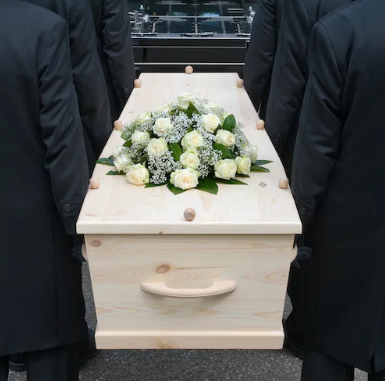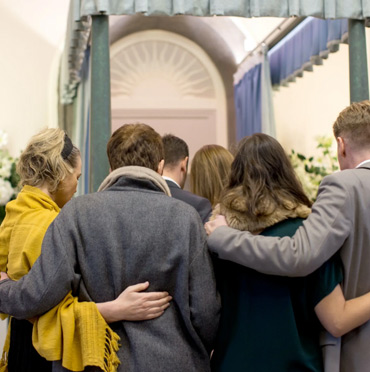Cremation and memorial services is a popular alternative to traditional burial, but many people don’t know how it works. In this guide, you will learn what cremation is and all of the associated processes. Like memorial services and scattering ceremonies. You’ll also find answers to common questions about this increasingly popular option.
What is Cremation and How Does it Work?
Cremation is the process of breaking down a deceased person’s remains through high heat and flame. The actual process includes placing the body into a cremation chamber or retort. Where temperatures reach up to 2000°F. The body is reduce to its basic elements. Which is refer to as cremated remains. These remains are subsequently processed into a finer substance. Similar to sand and sea salt, and is place in an urn or other vessel selected by the family.
During the cremation process, all organic material is consume with the intense heat and gas. Metals and other materials that do not combust. Can easily remove once the process is complete with a magnet. Bone fragments will remain. After the body is view by a known relative or authorized person. These fragments then mechanically processed to reduce them to smaller sizes. Before they place in an urn or other vessel provided by the family.
Types of Memorial Services.
In addition to the cremation process, many families choose to have a memorial service. To celebrate and honor the life of their loved one. Memorial services can take place at a funeral home or other venue. Where family and friends can gather together. A variety of funerary customs often incorporated into these services. Such as viewing of pictures or displays, religious rituals. Sharing stories and expressions of fondness, flowers, food and music.
Depending on one’s personal beliefs, tastes and cultural background. The type of memorial service can vary greatly. Some have more religious elements than others. Some involve scattering ashes while others involve traditional burial services. Additionally, some memorial services include individual rituals. Conducted by family members or friends. No matter what kind of memorial service is chosen. It can both a meaningful and healing experience for those who attend.
When a decision is make to provide cremation services as opposed to traditional burial. A memorial service can hold in a variety of ways. These range from intimate family gatherings held in one’s home. To large-scale gatherings hosted at churches or funeral homes. Commonly, guests will share stories, music and other performances. To celebrate the life of their loved one. Additionally, some choose to have guests release balloons or butterflies. As part of their memorial service, as symbols of life continuing on after death. Regardless of the type chosen. Cremation memorial services may become a necessary part of the grieving process. For families who have experience loss.
Issues Face When Planning a Funeral or Cremation Service.
One of the most difficult issues you will face when planning a funeral or cremation service is deciding on who should speak and what should say. Those delivering eulogies may struggle to find the right words to honor the deceased. Other common issues include family disagreements, choosing appropriate music and readings, and budgeting for the services. Working with your funeral director can help alleviate some of these concerns by providing professional guidance and comfort during this difficult time.
In addition, making arrangements for a cremation ceremony may particularly challenging for some. One of the most frequent questions that families have is where the cremated remains should place. Even if the family chooses a traditional burial, there are still many preparations to make in order to ensure everything goes smoothly on the day of the service. If you’re facing an unexpected death, it pays to work with an experienced funeral director who can provide guidance, emotional support and coordinate all aspects of the cremation process so that everything runs as smoothly as possible.
The first step in planning a cremation or funeral service is to come up with an appropriate budget. This includes such costs as the cremation or burial process, necessary permits and paperwork, any memorials or services, facility fees, and so on. Oftentimes family members struggle to agree on how much to spend on the service; this problem can address by planning ahead of time and organizing all finances beforehand so that everyone has realistic expectations for costs. In addition, if a life insurance policy exists it can help to ease some of the financial burden associated with the funeral. A good funeral director will able to provide cost-saving advice that helps you get the most value for your money without sacrificing quality of service when honoring a loved one’s memory.
Additionally, selecting the appropriate type of service and venue to honor a loved one’s memory can often a very difficult decision to make. If cremation is chosen, the family should decide if there will first a traditional visitation prior to the cremation or if the right thing is simply to have a memorial service afterward. This decision should also include deciding on what type of vessel or urn will house their loved one’s remains. If a funeral and burial is select, many more details must take into account such as time of service, location of plot, any flowers or jewellery that need to purchase for adorning the casket, music selection and so forth. It’s important for the family members involved in making these decisions to take enough time to carefully consider all aspects so that their loved one’s life can remember with respect and grace.



